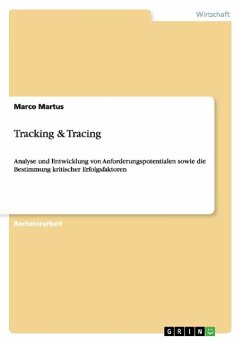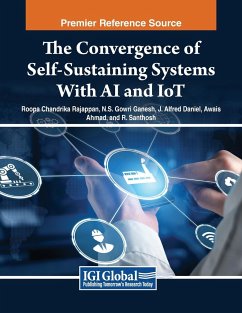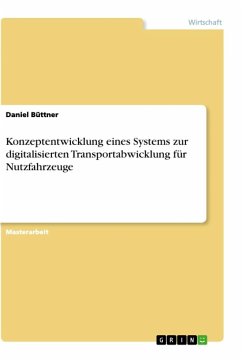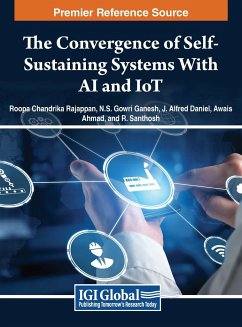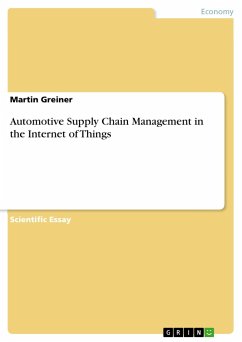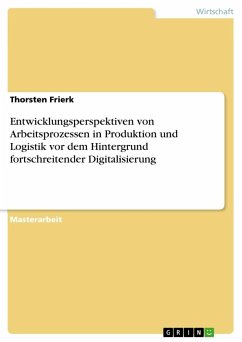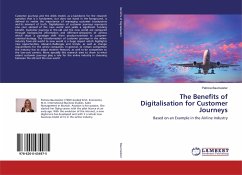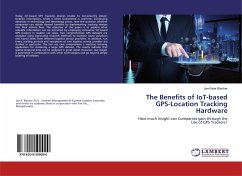
The Benefits of IoT-based GPS-Location Tracking Hardware
How much Insight can Companies gain through the Use of GPS Trackers?
Versandkostenfrei!
Versandfertig in 6-10 Tagen
27,99 €
inkl. MwSt.

PAYBACK Punkte
14 °P sammeln!
Today, IoT-based GPS tracking devices enable to conveniently obtain location information, which is often transmitted in real-time. Continuing advances in technology and decreasing prices, raise the question whether companies can obtain desired benefits by implementing tracking devices into their vehicle fleet. The objective of this paper is to explore what valuable information can be extracted by employing innovative IoT-based GPS trackers in realistic use cases. Two comprehensive GPS datasets are analyzed using explorative research methods to examine route variations and transit times from di...
Today, IoT-based GPS tracking devices enable to conveniently obtain location information, which is often transmitted in real-time. Continuing advances in technology and decreasing prices, raise the question whether companies can obtain desired benefits by implementing tracking devices into their vehicle fleet. The objective of this paper is to explore what valuable information can be extracted by employing innovative IoT-based GPS trackers in realistic use cases. Two comprehensive GPS datasets are analyzed using explorative research methods to examine route variations and transit times from different logistics service providers. In addition, run times, waiting periods and exceptions of one logistics service provider are studied in particular. The last use case compromises a machine learning application for clustering a large GPS dataset. The results indicate that spatial-temporal data can be analyzed in great detail. However, real insight is generated in combination with other technologies and go beyond simple locating of vehicles.



